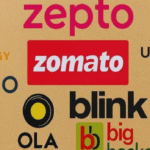
In a significant boost to consumer protection in the digital marketplace, 26 leading e-commerce platforms have voluntarily declared compliance with the Guidelines for Prevention and Regulation of Dark Patterns, 2023. The companies have submitted self-declaration letters confirming that their websites and apps are free from deceptive design practices that mislead or manipulate users.
The declarations follow internal or third-party audits conducted by the companies to identify, evaluate and eliminate any elements that qualify as dark patterns. The compliance reflects a strong industry-wide shift toward transparency, ethical digital design and consumer-first online ecosystems.
CCPA Welcomes Industry Compliance
Acknowledging the initiative, the Central Consumer Protection Authority (CCPA) termed the voluntary declarations “industry-best practice” and encouraged all digital platforms to follow suit. Earlier, the CCPA had instructed companies to publish their self-audit declarations prominently on their websites for public viewing.
The declarations are also available on the CCPA website.
The authority reiterated that manipulative designs are not only unethical but also short-sighted, damaging long-term brand credibility. It warned that enforcement action would be taken against platforms found violating guidelines in the future.
Strengthening Consumer Awareness
Through the National Consumer Helpline (NCH), social media campaigns, videos, and outreach programmes, consumers are being educated about identifying and reporting dark patterns. Complaints are being systematically addressed, and the CCPA has reaffirmed that it is closely monitoring potential violations.
Background: What the Guidelines Cover
The Guidelines for Prevention and Regulation of Dark Patterns, notified on 30 November 2023, identify 13 deceptive practices that are now prohibited under the Consumer Protection Act, 2019. These include:
- False urgency
- Basket sneaking
- Confirm shaming
- Forced action
- Subscription traps
- Interface interference
- Bait & switch
- Drip pricing
- Disguised advertisements
- Nagging
- Trick wording
- SaaS billing abuses
- Rogue malware patterns
To strengthen enforcement, CCPA issued an Advisory on 5 June 2025 requiring all e-commerce platforms and online service providers to conduct a mandatory self-audit within three months.
List of Compliant Platforms
The 26 platforms that have submitted self-audit declarations include:
Page Industries (Jockey, Speedo); William Penn; PharmEasy; Zepto; Curaden India; Duroflex; Flipkart; Myntra; Cleartrip; Walmart India; MakeMyTrip; BigBasket; Tira Beauty; JioMart; Reliance Jewels; Ajio; Reliance Digital; Netmeds; Hamleys; MilBasket; Swiggy; Tata 1mg; Zomato; Blinkit; Ixigo; and Meesho.
These platforms have confirmed either through internal assessments or third-party audits that they comply fully with the 2023 guidelines and have processes for ongoing monitoring.
A Strong Step Towards Transparent Digital Commerce
The voluntary compliance by these leading companies marks a watershed moment in India’s digital consumer ecosystem. As more businesses embrace transparent and ethical design practices, the online marketplace is set to become more trustworthy, fair and consumer-centric.
